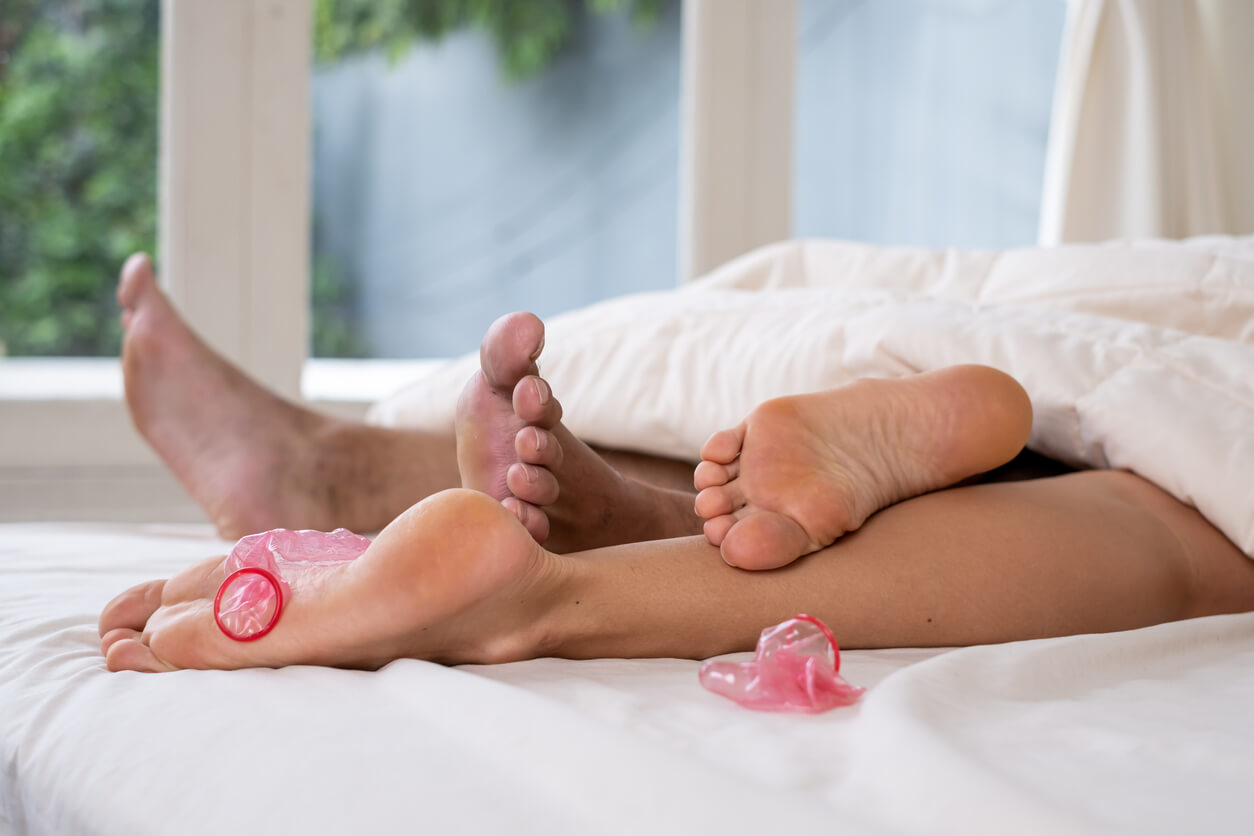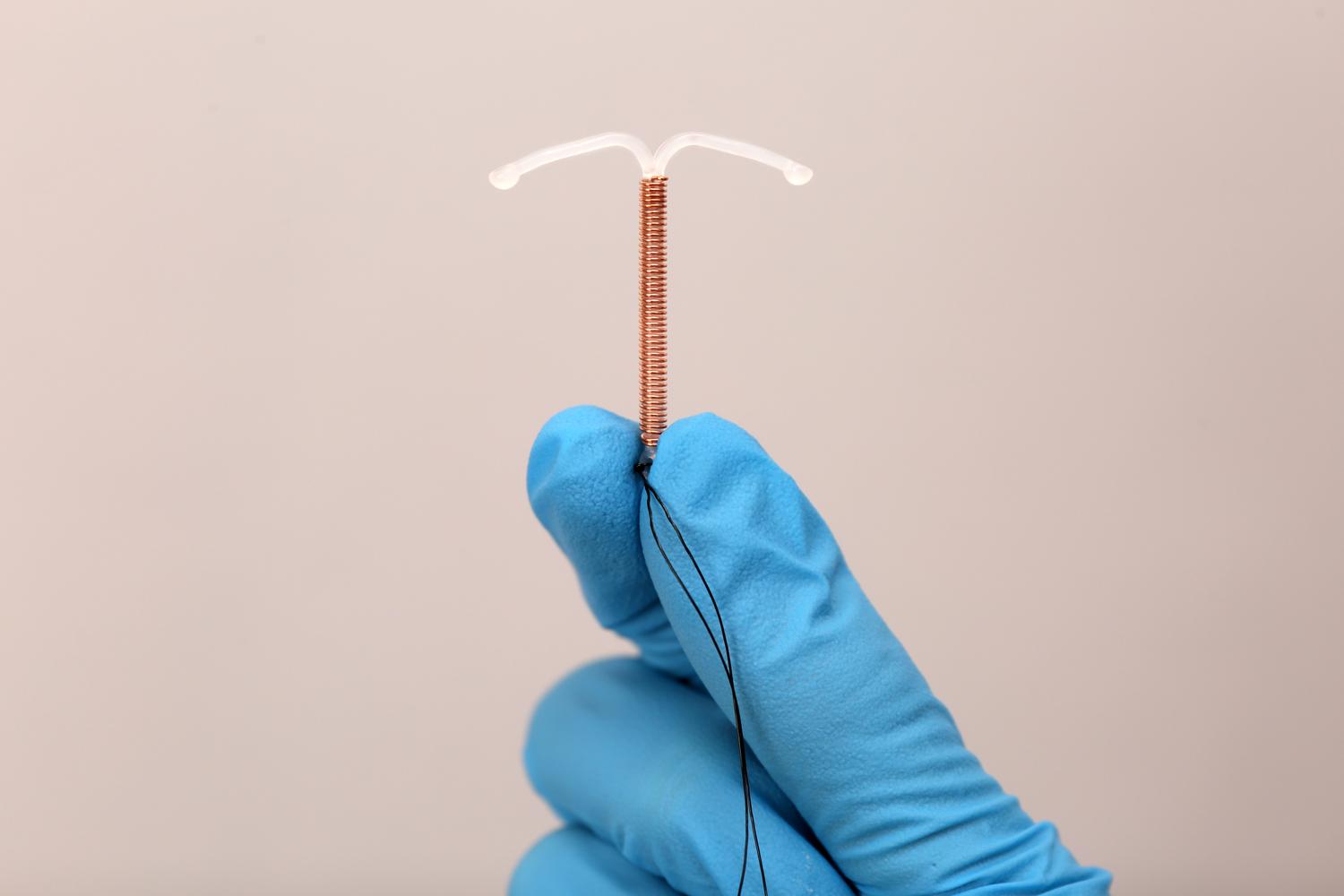12 Natural and Medical Ways to Boost Libido (Sex Drive)
Not in the mood? Let’s talk about it.
Low sex drive, also referred to as low libido, is a term used to describe a decrease in sexual desire. It’s actually quite natural - and common - for libido to fluctuate over the course of our lifetime. According to the NHS, around 1 in 5 men report low libido at some point in their lives. That number is even higher for women - an estimated 1 in 3 women between 30 and 59 will experience a dip in sex drive at some time.
Several factors can contribute to a low libido, encompassing a range of health conditions, lifestyle choices, and psychological issues:
- Hormonal imbalances: Fluctuations in testosterone levels in men and estrogen levels in women, particularly during menopause, can significantly impact sexual desire.
- Health conditions: Heart disease, high blood pressure, diabetes, obesity, and thyroid problems can affect blood flow and energy levels, influencing sexual function.
- Mental health issues: Depression, anxiety, stress and other conditions can lower libido.
- Relationship problems: Partner-related issues, or concerns related to body image and self-esteem, can contribute to a decrease in sexual interest.
- Medications: Certain medications, including hormonal contraceptives (birth control) and certain antidepressants, can reduce sex drive significantly.
However, just because low libido is common doesn’t mean it’s enjoyable. If you feel like a dip in your libido is causing stress to you or your relationship, it can be helpful to understand why you might be feeling the way you’re feeling - and how to address it.
In this blog post, we’ll explore some of the most common causes of low sex drive in both men and women, along with natural and medical interventions to improve your sexual health and wellness.
12 Natural and medical ways to boost sex drive
Improving one's sex drive involves addressing underlying issues and making positive lifestyle and health choices. Here are twelve ways to enhance libido naturally and medically:
- Manage your anxiety and stress
Managing stress and anxiety is an important part of improving low sex drive. When you're stressed or anxious, your body releases a hormone called cortisol. Cortisol can suppress your sex hormones, making it hard to relax and enjoy intimacy.
If you’re feeling stressed or anxious, practicing stress-reduction techniques can be helpful. Mindfulness, meditation, and yoga can improve overall mental health and make room for sexual desire to return. Speaking with a therapist or other licensed healthcare professional can also help you to identify and develop coping mechanisms for certain stressors.
- Balance your hormones
Hormones such as testosterone, estrogen, and progesterone play significant roles in regulating sexual desire and function. When your hormone levels are too high or too low, it can have a negative impact on your libido.
Low testosterone, for example, can lead to a decreased interest in sex for both men and women. Low testosterone can result in low libido and erectile dysfunction for men, and it can reduce sexual desire for women as well. Unbalanced testosterone levels can be a result of a number of things, including menopause, age, weight, or lifestyle habits like drinking and diet.
Estrogen and progesterone, primarily female hormones, significantly affect libido as well. Estrogen helps maintain vaginal health, and its deficiency can lead to discomfort during sex. Low estrogen can also reduce interest in sexual activity. Progesterone plays a role in sexual desire as well. Balancing these hormones can alleviate symptoms like vaginal dryness and improve overall sexual desire.
If you suspect that your low sex drive is a result of hormonal imbalance, hormone therapy may be an option. A healthcare provider can help address your concerns and order thyroid function labs if necessary to determine the cause of your symptoms. You can also book an online doctor appointment on Sesame so that a provider can assess what type of lab work you need; if deemed necessary, they can order a lab to a testing facility near you - no insurance needed.
- Improve your diet and nutrition
A healthy diet and good nutrition can enhance sex drive by improving hormonal balance, blood flow and energy levels.
For example, foods that are rich in zinc, like oysters and pumpkin seeds, can boost testosterone levels. This can strengthen blood flow to the genital area for both men and women, improving sexual function and satisfaction in both men and women. In other words, oysters are called an aphrodisiac for a reason!
Other important nutrients include omega-3 fatty acids and vitamins E and B. Omega-3s, which are found in foods like salmon and avocados, can enhance circulation. This, in turn, can promote better sexual function. Vitamins E and B, abundant in nuts and whole grains, contribute to hormonal balance and energy production.
Integrating nutrient-dense foods into your daily diet can naturally increase libido by nurturing your body's overall health and vitality, laying a strong foundation for a fulfilling sexual life. If you’re concerned that your diet is not balanced enough or impacting your sex life, talk with a doctor or nutritionist who can provide personalized dietary recommendations to support overall wellness and sexual health.
- Increase your physical activity
Regular physical activity can improve libido for a number of reasons. Exercise can boost energy levels, improve body image, and enhance blood circulation, all of which can increase sexual desire.
There are a number of studies that support this positive relationship between physical fitness and sexual health; in fact, studies of women with antidepressant-induced sexual dysfunction and women who had undergone hysterectomies found that exercise was able to improve sexual arousal for both groups.
It’s especially important to stay physically active as you get older. A 2017 study published by the Journal of Sex Research found that when 1,000 adults aged 40 and older responded to two surveys about their sex lives 10 years apart, the frequency, quality, and interest in sex all declined over that ten-year period – and those who were in better health tended to have more active, satisfying sex lives.
- Address medical conditions
Addressing medical conditions such as diabetes, obesity, high cholesterol and high blood pressure is crucial for maintaining not only overall health but also a healthy libido. These conditions can have a significant impact on sexual desire and performance due to their influence on blood flow, hormonal balance and energy levels.
For instance, diabetes can lead to neuropathy, affecting nerve function and potentially decreasing sexual response. Obesity can disrupt hormone levels, reducing libido and contributing to erectile dysfunction in men. High cholesterol and high blood pressure can impede blood flow, making it difficult to achieve or maintain an erection.
Moreover, these conditions can sometimes be linked to psychological factors such as depression, which can further diminish sexual desire. Therefore, managing these health issues through lifestyle changes, medication and consultation with healthcare professionals can have a positive impact on libido!
- Limit alcohol and smoking
Limiting your alcohol intake and quitting smoking can have a significant positive impact on libido! This is because alcohol can actually depress the central nervous system, reducing sexual desire and performance over time. Excessive alcohol consumption can also lead to long-term health issues that further detract from sexual function and libido.
Smoking, on the other hand, has a direct effect on blood circulation. It narrows blood vessels and restricts blood flow, which is crucial for sexual arousal in both men and women. Nicotine, an addictive ingredient found in vapes and cigarettes, has also been shown to reduce sexual arousal and overall satisfaction.
Together, reducing alcohol consumption and quitting smoking can lead to improved overall health, enhanced mood and energy levels, and a significant increase in sexual desire and performance. As a result, it can contribute to a healthier and more satisfying sex life.
- Enhance your sleep quality
Getting a good night’s sleep is crucial for the balance of hormones that influence sexual desire. When sleep is compromised, the body experiences disruptions in the production and regulation of these hormones, including testosterone, which plays a vital role in libido for both men and women.
Adequate rest also helps reduce stress and anxiety, factors that can further affect sexual desire negatively. Plus, being well-rested improves your energy levels, making you more likely to initiate or respond to your partner's advances with enthusiasm rather than with a yawn!
If you’re trying to get a better night’s sleep, consider going to bed at an earlier hour, using a white noise machine to cancel out noises that can disrupt your slumber, and ensuring that your bedroom is dark, relaxing, and a comfortable temperature; you’ll set the stage for romance by ensuring you’re physically and mentally ready to enjoy the moment.
- Explore supplements
Certain supplements, like fenugreek and ginkgo biloba extract have been linked to increased sexual desire. However, the effectiveness and safety of these products can vary widely. In a study of 5 randomized controlled trials (475 participants) on ginkgo biloba extract’s impact on libido, researchers found that it did have positive effects on sexual function for postmenopausal women. However, it didn’t help improve the libido of participants who were on antidepressants, and it also led to headaches and gastrointestinal events for some participants.
While some supplements are touted for their potential to boost libido, it's crucial to approach them with caution. The market is saturated with products that claim miraculous benefits but offer no real improvement (and can potentially pose risks to your health).
Before incorporating any supplement into your routine, chat with your healthcare provider so that they can offer guidance based on scientific evidence and your personal medical history.
- Utilize lubricants
Using lubricants can significantly impact libido and sexual satisfaction in a positive way! For individuals experiencing dryness, which can be due to a variety of reasons such as stress, hormonal changes, medications, or aging, lubricants can reduce discomfort and pain during sex. This can make the experience more pleasurable and enjoyable!
Using a personal lubricant can also enhance sensations for both partners, making sexual activity more satisfying. The psychological effect of anticipating a more comfortable and pleasurable sexual experience can also contribute to a higher libido, as it creates a positive feedback loop of sexual desire and satisfaction.
Lubricants come in various types, such as water-based, silicone-based and oil-based, each catering to different needs. Be aware that oil-based lubricants can wear down the latex in condoms and cause them to break (talk about a mood kill) and can also stain fabrics more easily, while silicone-based lubricants can break down silicone toys. Therefore, it’s best to research which type of lubricant is best for your bedroom preferences beforehand!
- Seek therapy for relationship issues
Relationship problems can significantly affect sexual interest. Couples therapy or sex therapy can address these issues, improving communication and intimacy.
Sex therapy, which focuses specifically on sexual health and satisfaction, can help individuals and couples explore, identify, and address psychological, physical, and emotional factors influencing their sexual desire. Techniques such as communication exercises, education about sexual response and techniques, and strategies for reducing performance anxiety can enhance libido by improving sexual confidence and emotional connection between partners.
Couples therapy, on the other hand, might not directly address sexual issues but can significantly influence libido by treating underlying communication problems or psychological issues such as depression, anxiety, or stress that can impact sexual desire in relationships. Both forms of therapy recognize that there is a complex interplay between mental health and sexual health, and both offer tailored approaches to improve libido.
- Don’t skip foreplay
Foreplay can encompass a number of activities, including touching, kissing, oral sex, or incorporating sex toys into your intimacy routine. Foreplay has been shown to play a significant role in enhancing libido, acting as a catalyst for sexual desire and satisfaction. Countless studies highlight the psychological and physiological benefits of foreplay, emphasizing its importance in increasing arousal and sexual interest.
For example, one 2012 study found that both men and women are less likely to experience difficulties with orgasm, sexual pleasure, and sexual arousal when they engage in foreplay such as kissing, hugging, caressing and other forms of sexual touch. This is partially attributed to the way foreplay stimulates the release of hormones like oxytocin and dopamine, which not only heighten desire but can also strengthen emotional intimacy between partners.
- Work on fostering emotional intimacy
If you’ve noticed a lull in your desire to have sex, or if you and your partner aren’t getting intimate as often as you used to, you’re not alone! This happens often in couples who have been in a long-term relationship or people who are perceiving intimacy problems. If you’re trying to resolve these issues, fostering emotional intimacy is a great place to start.
Emotional intimacy is a concept that revolves around being open and honest with your partner, and it can significantly boost libido. When partners feel connected on a deeper level, they're more likely to desire physical closeness, enhancing sexual desire. Trust and understanding, built through emotional intimacy, make it easier to communicate desires and boundaries. This can lead to more satisfying sexual experiences.
Some activities that can foster emotional intimacy include spending quality time with your partner, breaking up your routine a bit, and expressing gratitude for one another. For example, you might want to try cooking dinner together instead of binging Netflix on the couch, or take a moment to let your partner know how much you appreciate their sense of humor. Simply put, when you're emotionally in tune, you're more likely to be physically in sync, too.
Medical ways to boost libido in males
While low libido in men can be a result of stress or other psychological factors, it can also be a symptom of underlying medical conditions.
Medical options such as Testosterone Replacement Therapy (TRT) can be effective for men with low testosterone levels, enhancing libido and overall well-being.
Additionally, Phosphodiesterase type 5 inhibitors (PDE5 inhibitors) like sildenafil (Viagra), tadalafil (Cialis), and vardenafil (Levitra) are widely used to treat erectile dysfunction, indirectly supporting an increase in libido by improving sexual function. If you feel like erectile dysfunction is impacting your libido, consider booking an online ED consult so that a licensed provider can address your concerns and prescribe medication if necessary.
Medical ways to boost libido in women
While low libido in women can be a result of psychological factors such as anxiety, stress or relationship issues, it can also stem from medical conditions.
For women who are experiencing hormonal changes stemming from perimenopause or menopause, estrogen therapy in the form of pills, patches, or gels can help to low libido. Medications such as Flibanserin (Addyi) and Bremelanotide (Vyleesi) are sometimes prescribed to improve sexual desire as well.
Birth control can also play a big role in libido - some women find that they’re feeling more aroused than ever, while others notice a dip in their sexual desire. If you feel like your birth control is affecting your sex drive, talk with a provider about your symptoms! They may recommend a different birth control option to help you get back on track!
How Sesame can help
Experiencing a low sex drive can be challenging, but there are various strategies to manage and overcome this issue. Whether through lifestyle changes, medical interventions, or both, it's possible to boost libido and improve sexual health.
However, it's essential to consult with a healthcare provider to get to the root cause of the problem and receive tailored medical advice. Book an online doctor appointment on Sesame today to discuss your sexual health with a licensed healthcare provider. These discreet and convenient visits offer an opportunity to address your concerns and discuss potential treatment options so that you can take a step toward enhancing your sexual health and well-being.









